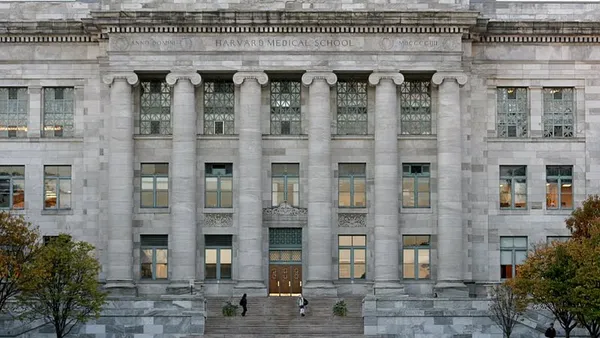Dive Brief:
- Connecticut Gov. Ned Lamont has requested a state audit into the Connecticut State Colleges and Universities system after a news investigation found the system’s chancellor spent public money on pricey meals and chauffeurs.
- During his three-year tenure, Chancellor Terrence Cheng has often put expensive meals on his state-funded credit card , including $1,114 at restaurants during one week in September 2023, CT Insider reported last week. Cheng has also occasionally used chauffeurs, including $490 in one day in November 2022, the publication found.
- In a Friday letter, Lamont urged Connecticut’s state comptroller office to review the community college system’s spending, including expenses related to meals, entertainment and travel. He also asked for an itemized report of purchases made with p-cards, which refers to purchase cards employees can use for institutional expenses.
Dive Insight:
The CT Insider investigation also found several examples of Cheng’s spending that may have broken state rules or institutional policies, including expensing alcohol and missing some receipts. Cheng told the publication that the potential violations were clerical errors and defended his credit card spending, arguing that the activity was part of establishing relationships that could benefit the system.
The probe into the chancellor's spending comes at a time when the system is raising tuition and grappling with cuts.
In early 2024, CSCU rolled out a voluntary buyout program to help address a $140 million deficit, though a faculty union said in March that its members would refuse to participate. The system’s governing board also approved a 5% tuition hike across all but one of its institutions over vocal opposition from students and faculty. The increase took effect this fall.
“Recent reports of controversial spending decisions have raised serious concerns about the transparency and accountability of CSCU’s financial management,” Lamont said in a statement Friday. “As CSCU has recently implemented measures such as tuition increases and program reductions to address significant budget shortfalls, it is imperative that the public have complete transparency into how public funds are being utilized.”
The network’s system office is ready to help the state’s comptroller office by providing any requested information or documentation, Adam Joseph, the system’s vice chancellor for public affairs, said Tuesday in an emailed statement.
In the meantime, the system’s governing board has increased its oversight of spending within the system’s central office, and the network will soon hire a new chief compliance officer and legal counsel.
“Once they are on the job, Chancellor Cheng will instruct both individuals to initiate a review of CSCU’s p-card and travel policies,” Joseph said.
He added that the system is “committed to the responsible use of state funding,” noting that the central system’s office and shared services division lowered their spending by about $12 million in fiscal year 2024.
As part of the audit, Lamont requested that the comptroller’s office review how state-owned vehicles are used by employees, including looking into their fuel costs. He also asked that the probe assess whether public money is being managed in a way that aligns with state policies.
“It is critical that the public have confidence in the financial stewardship of the CSCU,” Lamont wrote in the letter to the state comptroller's office. “Students, faculty and the citizens of Connecticut deserve to know that the public resources are being used appropriately.”
Cheng did not respond to an emailed request for comment Tuesday.
In response to CT Insider’s investigation, Connecticut State Senate Minority Leader Stephen Harding, a Republican, blasted Cheng’s spending habits.
“The tone deaf champagne tastes of Chancellor Cheng are not a good look for the chancellor or for the CSCU system,” Harding said in a statement. “It should frustrate anyone who reads about it. It smacks of arrogance and disrespect for taxpayers, students, and students’ families alike.”
The system has two- and four-year institutions spanning over a dozen campuses.














